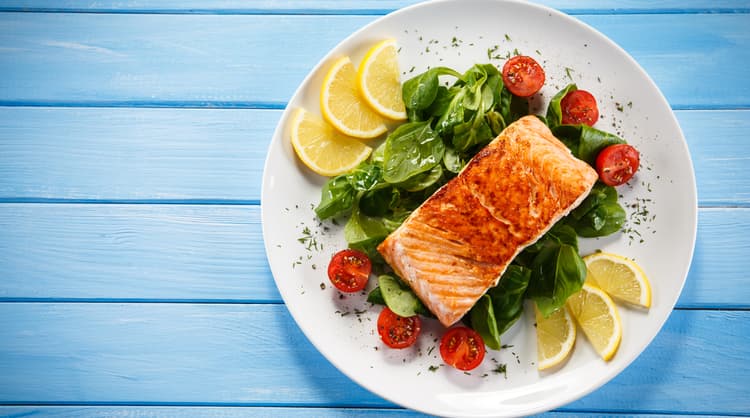5 foods that help our brain study

We all know that a healthy, balanced diet is great for maintaining our physical health and wellbeing, but did you know what you eat can have an effect on your brain as well?
The effects of certain foods on the brain has been a subject of study for years and research has shown that certain nutrients can help make you more alert, focused and boost your memory.
This is welcome news if you are studying for an exam and trying to take in a lot of new information. Your brain, like every other vital organ in your body, needs the right fuel to work to its full potential and form new connections that help with learning.
Here is a list of the top foods that boost brain power—backed by science:
1. Oats.
Start off your morning with oatmeal for breakfast to keep your mind focused for the day ahead. Oats are a brilliant brain booster since they contain fibres and vitamins that can improve memory function and they can also keep you fuller for longer—which means you’re less likely to reach for a snack before lunchtime.
Swap out the processed cereal for oats or blend them into your favourite smoothie if you’re on the go and you’ll quickly notice a difference in both your energy levels and mental focus.
2. Fish.

Fatty fish are species of fish which contain oil in their soft tissue around the gut. Popular oily fish include salmon, tuna, mackerel, anchovies, trout and sardines. These types of fish are high in omega-3 fatty acids which are vital for brain function and help to facilitate communication between brain cells. Plenty of research suggests that a diet high in oily fish has numerous positive neurological benefits.
3. Nuts, seeds and berries.
Do you often stay up late into the night during a study session? Incorporating magnesium into your diet may help, since it is thought to promote sleep and can help regulate your sleeping if you suffer from insomnia.
Nuts and seeds are among the most magnesium rich foods that also happen to be high in other minerals like potassium, zinc and selenium—all of which improve memory and concentration.
One study even found that women who ate nuts regularly had a sharper memory than those who did not. Some of the best nuts and seeds to fuel your brain include sunflower seeds, almonds and hazelnuts.
For those of us with a sweet tooth, berries make an excellent healthy choice. Berries contain high levels of antioxidants which help reduce stress and inflammation. The antioxidant compounds found in berries can improve communication between brain cells, help brain cells form new connections, boost learning and reduce or delay age-related neurodegenerative diseases. The most nutrient-dense berries include blueberries, strawberries, blackberries and blackcurrants.
4. Coffee.

Can’t survive the day without your morning coffee? Well, there’s good news—coffee is a great brain boosting beverage with many benefits beyond keeping us awake. Coffee contains antioxidants, improves mood and keeps your brain alert. However, some people are more susceptible to the effects of caffeine and it can affect sleep, so it is not recommended for everyone.
5. Eggs.
In addition to being a great source of protein, eggs contain essential vitamins including vitamins B6 and B12, folate and choline. Choline is a micronutrient that aids mood regulation and memory function.
Scientific studies suggest that higher intakes of choline are associated with improved mental function. Although some cultures treat eggs as exclusively a breakfast food, you can consume eggs with any meal throughout the day. Boiled eggs are a great snack if you’re on the go, as well as a tasty addition to salads.
More tips for maintaining a healthy brain.
- Keep your energy up with healthy snacks throughout the day. Many of the foods listed here are optimal alternatives to unhealthy snacks such as potato chips or sweets. If you find your energy levels dipping throughout the day, keep healthy snacks (like nuts or fruit) on hand.
- Try to avoid excessive amounts of processed sugar. Research has shown that high sugar consumption can cause inflammation in the brain and lead to memory difficulties. This has a negative effect on your concentration and makes it harder to stay focused.
- Be sure to get enough sleep. You’ve heard it before, but good sleep is essential for brain health, and no amount of healthy food can change that. Without sleep, your brain is unable to form or maintain the neural pathways that allow you to learn and create new memories. A good night’s sleep will ensure that the healthy foods you’re eating do their job.
- Stay balanced. Stressing yourself out about what you can and cannot eat is not helpful. Incorporate your favourite foods into your diet, just be sure to do so in moderation. Make it easier for yourself to make healthy choices by planning meals in advance, buying high quality, healthy foods each week and simplifying your meals.
Looking for more study tips?
Did you find this article helpful? Be sure to check out our other study tips to help keep you motivated and achieving your goals. From the benefits of self-study to how to stop procrastinating you can read more about how to improve your study habits and make better progress with your learning on SkillsTalk.


)
)

